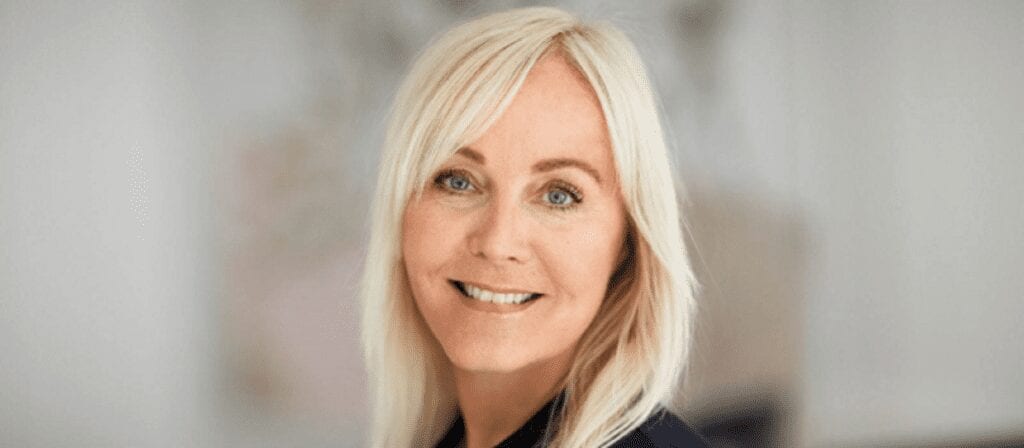ICMIF member companies with over 30% women on their boards outperformed the total ICMIF membership in terms of 5-year and 10-year premium growth. This was the key finding when ICMIF compared the latest financial performance of its membership through its research on the gender diversity of its members’ boards of directors. Ahead of International Women’s Day 2023, ICMIF’s Member Analyst and Researcher Georgina Compton, looks at the links between female representation and financial performance and showcases some of the ICMIF members leading the way in terms of gender diversity and inclusion.
There is a growing body of research into gender diversity and financial performance that suggests companies with more diverse boards may perform better financially. One study by MSCI found that companies with at least three women on their boards reported median gains of 10% ROE and 37% earnings per share compared to companies that had no female directors which experienced 1% ROE and -8% in earnings per share. MSCI theorises that this higher level of performance may be because of better decision making from a more diverse group of directors.
A series of reports by McKinsey in 2015, 2018 and 2020 found that the relationship between diversity on executive teams and financial outperformance has strengthened over time with those organisations which are most diverse, adopting business-led approaches to diversity, equity and inclusion (DEI). The report in 2020 examined over 1,000 companies in 15 countries and found that companies with at least 30% of executives that were female were more likely to outperform those where women made up less than 30% of these positions.
A fair representation of women on boards is not only positive in terms of financial growth: research has shown that gender diversity could be an indicator of how innovative a company is with some of the most innovative companies having higher representations of women on their boards than their competitors.
In addition to being an indicator of performance, having representation of women at all levels of an organisation and initiatives that foster greater company-wide inclusivity may also improve staff well-being. It is important for women to see themselves represented in leadership positions, and recent research suggests that diversity and mental health are linked.
Diversity may also make a company more appealing to younger job seekers: a study by the Institute for Public Relations found that 47% of millennials consider the DEI credentials of prospective employers when searching for a job. In a landscape where the “Great Resignation” has somewhat shifted the power from employer to employee, talent attraction and retention are on the minds of all leaders – not just HR managers. Having a healthy work environment where employees feel represented may be the difference between retaining the best talent and losing it.
Gender diversity and financial performance among ICMIF members
At the end of last year, ICMIF released the third edition of its ICMIF Members’ Governance report, which examined board composition; board and CEO tenure; as well as gender diversity at board, CEO and senior management level across ICMIF’s membership. The report, based on data from 2020, found that ICMIF members were broadly ahead of the industry in terms of gender diversity, particularly at senior leadership (34%) and CEO (22.5%) levels. On average ICMIF members had boards that were comprised of 28% female directors. Over the 15-year period the ICMIF Members’ Governance reports have covered, ICMIF members have continuously stayed ahead of the industry in female representation: we are proud of our members’ collective commitment to gender diversity as it highlights a key purpose-led leadership characteristic of our membership that has been used to shape ICMIF’s next four-year strategy.
In light of International Women’s Day, we examined the financial performance of members with over 30% women on their boards, the minimum recommended by the 30% club as the critical mass needed for minorities to make an impact in the boardroom. The premium growth between 2011 and 2021 for three groups was compared: those members with less than 30% women on their boards, those with over 30%, and those with 50% or more.
Analysis showed that members with over 50% women on their boards had a total 5-year growth of 6.9%, exceeding the growth of members with less than 30% women on boards (5.1%). Those with over 50% had a total 10-year growth of 30.2% which exceeds the growth of members with less than 30% (13.7%).
The growth of members with over 30% women on their boards was 24.7% for 5-year growth and 63.5% for 10-year growth. This exceeded members with over 50% and those with under 30% women on their boards; and the total ICMIF membership (13.2% 5-year and 35.4% 10-year growth).
Gender inclusivity among the ICMIF membership
Many of ICMIF’s members have been noted for their inclusive and diverse hiring practices and gender inclusion. Several members were recently recognised by Forbes list of world’s top female-friendly companies including MAIF (France) and Desjardins Group (Canada) in third and fourth position respectively. MAIF is committed to increased diversity and measuring equal pay for men and women in line with its mission; while Desjardins sees diversity as a source of strength and is committed to increasing the number of women in leadership positions, encouraging their development through Empowering Women, its women’s network group.
Other ICMIF members have been recognised for their inclusivity including Co-operators (Canada) which was named in the 2021 Report on Business Magazine’s Women Lead Here list and LB Group (Denmark) whose management positions are comprised of 49% women, ahead of the average of other members of the Financial Sector Employers Association in Denmark by 20%.
Shelter (USA) was recognised as a top diversity employer in 2021 for its dedication to building a diverse workforce. The organisation began its diversity journey with a diversity internship programme over 30 years ago and today has several initiatives including a women’s advocacy group (SWAG) which holds educational activities to improve their professional skills and network. Shelter reports on its diversity and inclusion in an annual report.
Inclusivity goes beyond employees and hiring practices for the Self Employed Women’s Association (SEWA) Cooperative Federation. The organisation supports 300,000 women from over 100 female-owned and female led cooperatives, helping to build the collective strength, economic empowerment and bargaining power of female workers. SEWA Cooperative Federation, along with its sister organisations has worked to support women owned businesses and self-employed women across south Asia.






